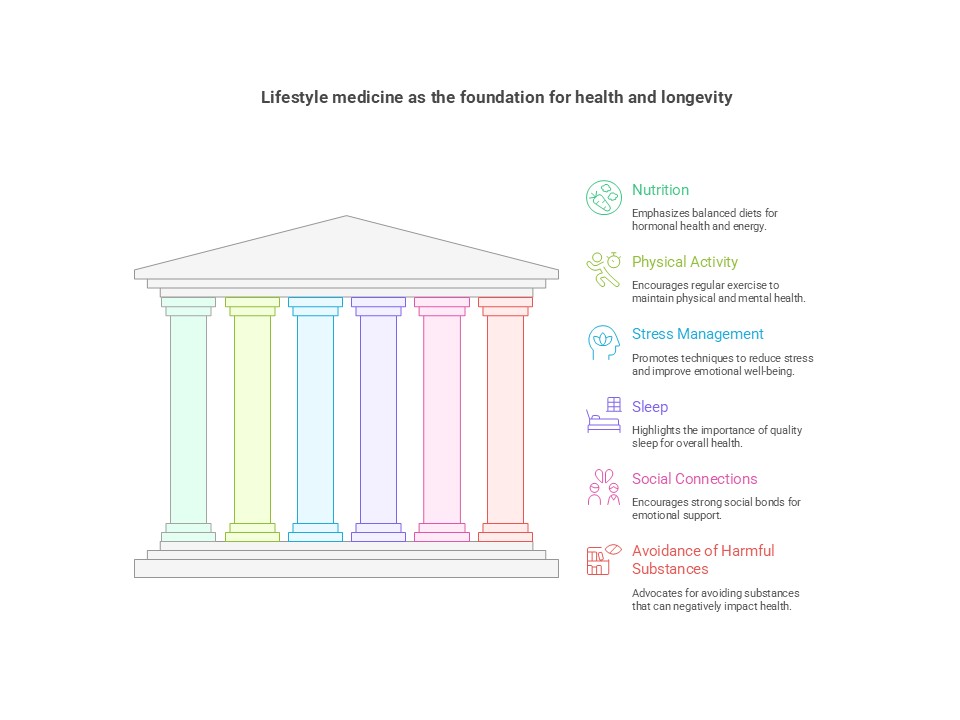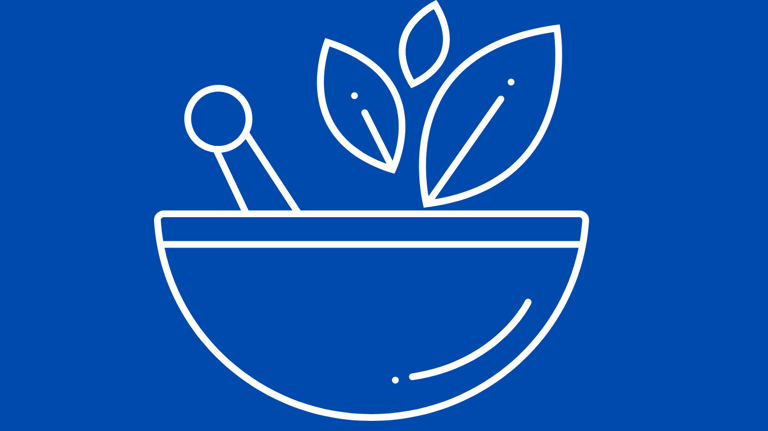Six pillars of lifestyle medicine
The six pillars of lifestyle medicine are fundamental building blocks to midlife health and wellbeing
Sally Arnison
9/28/20253 min read


Six pillars of lifestyle medicine
When perimenopause symptoms like hot flushes, disrupted sleep and mood swings kick in, it is often the first time many women have had to consider their health. What you have done for years in terms of lifestyle behaviours often stop working and this can feel overwhelming—but its is a great also an opportunity for a midlife health check to set you up for the next few decades of life.
By harnessing the six pillars of lifestyle medicine, women can not only ease the challenges of this transition but also build a foundation for long-term health and vitality. The six pillars need to be balanced in order to set a stable foundation.
Let’s explore how each pillar applies during perimenopause and menopause:
1. Nutrition: food as medicine
Shifts in oestrogen and progesterone affect metabolism, bone density, cardiovascular health, and body composition. Choosing nutrient-dense, whole foods helps protect against these changes.
Prioritise plant-forward meals rich in fibre, phytoestrogens (like soya, flaxseed, and lentils), and antioxidants.
Ensure adequate calcium, magnesium, and vitamin D for bone health.
Reduce highly processed foods and excess sugar to support weight management and lower risk of type 2 diabetes.
Balance meals to steady blood sugar—especially important for reducing mood swings and energy crashes.
2. Physical activity: movement that matters
Exercise is one of the most powerful tools for thriving in midlife.
Strength training preserves muscle mass and bone density.
Cardiovascular exercise supports heart health, which becomes more critical post-menopause.
Flexibility and balance practices like yoga or Pilates improve mobility and reduce risk of falls.
Even short bouts of movement throughout the day can combat fatigue and improve mood.
3. Restorative sleep
Sleep disruption is a hallmark complaint during perimenopause and menopause. Hormonal fluctuations, night sweats, and stress can interfere with restorative rest.
Establish a calming bedtime routine (cool room, dark environment, no screens before bed).
Mind–body practices such as meditation, breathing exercises, or gentle stretching can improve sleep quality.
Limit caffeine and alcohol, especially in the evening.
Consistent sleep and wake times help regulate circadian rhythms.
4. Stress management
Emotional changes, midlife responsibilities, and physical symptoms can increase stress during this life phase. Chronic stress may intensify hot flushes, disrupt sleep, and affect weight.
Practise mindfulness, meditation, or journalling to reduce reactivity.
Spend time in nature to reset the nervous system.
Build in micro-moments of relaxation—deep breathing, stretching, or even pausing for a mindful cup of tea.
Consider therapy or support groups to navigate emotional changes.
5. Healthy relationships & social connection
Connection is medicine. Menopause can feel isolating, but strong social ties buffer stress, improve mood, and support resilience.
Share experiences with trusted friends or in menopause support groups.
Prioritise quality time with family, partners, and community.
Cultivate joy and laughter—it lowers stress hormones and boosts wellbeing.
If relationships are strained, this can be a powerful time to set boundaries and invest in those that nourish you.
6. Avoidance of risky substances and behaviours
Substances like tobacco and excessive alcohol carry added risks during and after menopause.
Tobacco accelerates bone loss, increases cardiovascular risk, and worsens hot flushes.
Alcohol can exacerbate sleep issues, increase cancer risk, and impact mood regulation.
Be mindful of over-reliance on caffeine, which can worsen anxiety, hot flushes, and insomnia.
Focus on moderation and mindful choices to align with long-term health goals.
If you are struggling with unhealthy behaviours like spending, eating or gambling – seek help.
The Bottom Line
Menopause is not an ending—it’s a new chapter. By leaning into the six pillars of lifestyle medicine—nutrition, movement, sleep, stress management, connection, and avoidance of risky substances—and finding some balance in each pillar, women can feel empowered, resilient, and vibrant.
Perimenopause and menopause are invitations to realign with the body, nurture wellbeing, and lay the groundwork for a strong, healthy future.


My post content
